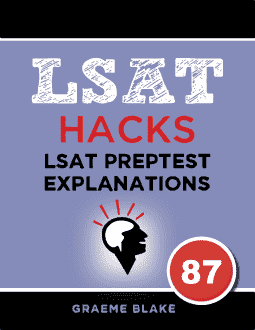QUESTION TEXT: After monitoring blood levels of lycopene (a nutrient found…
QUESTION TYPE: Weakening
CONCLUSION: Lycopene reduces the risk of stroke.
REASONING: Participants with low lycopene were twice as likely as participants with high lycopene to have a stroke.
ANALYSIS: Weakening this argument will mean that we will need to find another explanation, besides lycopene, for why those participants were reported as being less likely to have a stroke. This means that our answer will be something that gives us reason to believe that lycopene itself is not the reason that strokes are less likely. For example, our answer might give us reason to doubt the study or offer an alternative solution that replaces lycopene as being the cause of the reduced strokes.
___________
- CORRECT. This works perfectly as an alternative explanation. This answer tells us that high lycopene might simply be a side effect of the real stroke-reducer, namely the other nutrients that are thought to reduce stroke risks.
- This strengthens the argument by promoting the idea that lycopene reduces stroke risk.
- We aren’t comparing middle-aged people with young adults in this question, so this is irrelevant.
- This is close to A, but it’s important that we are not told in this answer that fruits and vegetables reduce stroke risk. Therefore, we cannot assume that fruits and vegetables are causing the health benefits, rather than the lycopene found within them.
- This is irrelevant, since the range of lycopene levels don’t matter for determining the efficacy of lycopene itself.
Recap: The question begins with “After monitoring blood levels of lycopene (a nutrient found”. It is a Weakening question. Learn how to master LSAT Weaken questions on the LSAT Logical Reasoning question types page.


Leave a Reply